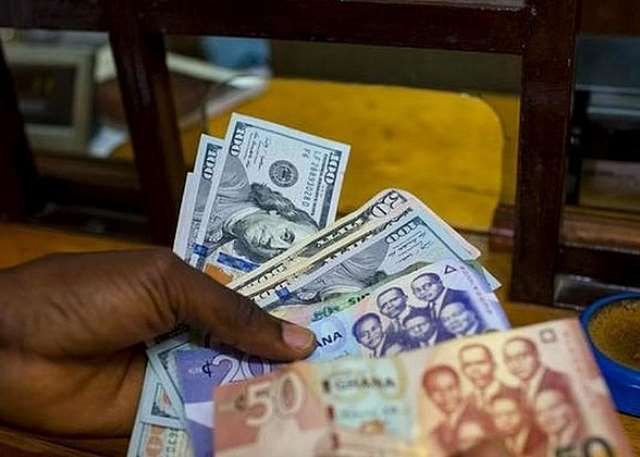The Ghanaian cedi’s performance against major international currencies, particularly the US dollar, has been a subject of ongoing observation and analysis, demonstrating a dynamic interplay between market forces, economic policies, and global financial trends. As of June 18, 2025, the average exchange rate for the cedi against the US dollar stood at GHS10.35 for buying and GHS11.05 for selling, reflecting the typical spread between buying and selling rates in the foreign exchange market. This data, provided by Cedirates.com, a reliable source for currency information in Ghana, captures a snapshot of the cedi’s value in the broader context of the Ghanaian economy. The difference between the buying and selling rates, known as the bid-ask spread, represents the profit margin for currency traders and reflects the inherent costs and risks associated with foreign exchange transactions.
A deeper dive into the foreign exchange landscape reveals variations in exchange rates across different market segments. At forex bureaus, which cater primarily to individuals and smaller businesses, the rates are generally less favorable for those exchanging cedis for dollars. The buying rate at forex bureaus is GHS11.75 per dollar, while the selling rate is GHS12.00, indicating a wider spread than the interbank market. This discrepancy highlights the impact of market segmentation and the influence of supply and demand dynamics on currency pricing. Forex bureaus, often operating with higher overhead costs and catering to smaller transaction volumes, typically offer less competitive rates compared to the interbank market.
In contrast, the interbank market, where large financial institutions trade currencies, offers tighter spreads and more competitive rates. The interbank rate for buying dollars was GHS10.29, and the selling rate was GHS10.31, demonstrating a significantly smaller spread than the rates observed at forex bureaus. This difference underscores the role of market structure and the impact of large transaction volumes on currency pricing within the interbank market. The lower spreads in the interbank market reflect the efficiency of large-scale currency trading and the reduced transaction costs associated with high-volume transactions.
The cedi’s performance against other major currencies, such as the British pound and the Euro, follows similar trends. The average exchange rate for the pound was GHS13.82 for buying and GHS14.73 for selling, while the Euro traded at GHS11.83 for buying and GHS12.68 for selling. These rates, like those for the US dollar, reflect the prevailing market conditions and the relative strengths of the respective currencies. The fluctuations in these exchange rates are influenced by a multitude of factors, including international trade balances, interest rate differentials, and investor sentiment towards the Ghanaian economy.
The Bank of Ghana’s interbank market offers a slightly different perspective. The pound was selling at GHS13.92, and the euro was trading at GHS11.89. These rates, though close to the average market rates, highlight the role of the central bank in influencing currency exchange rates. The Bank of Ghana’s interventions in the foreign exchange market, such as buying or selling currencies, can impact the supply and demand dynamics and consequently influence the prevailing exchange rates. These interventions are part of the central bank’s broader mandate to maintain price stability and manage the country’s foreign exchange reserves.
Money transfer operators, such as LemFi and Hurupay, offer competitive rates for remittances from abroad. For dollar transfers from the US or the UK, LemFi offers a rate of GHS10.25 per dollar, while Hurupay offers GHS10.31. For pound transfers, LemFi offers GHS13.93, and Afriex provides a rate of GHS16.24. For euro transfers, Afriex offers GHS13.89, and LemFi provides GHS11.88. These rates cater to the specific needs of individuals sending money to Ghana and often provide more favorable terms compared to traditional banking channels. The emergence of these specialized money transfer operators has increased competition in the remittance market, ultimately benefiting consumers with more competitive exchange rates and lower transaction fees.
Finally, for digital subscriptions like Netflix, Spotify, or Apple Music, the exchange rates for Visa and Mastercard transactions are GHS11.02 and GHS11.07, respectively. These rates are typically determined by the payment processors and reflect the underlying currency conversion costs associated with international transactions. The slight variation between the Visa and Mastercard rates likely reflects differences in their respective processing fees and currency conversion mechanisms. Understanding these various exchange rates and their influencing factors is crucial for individuals and businesses engaged in international transactions involving the Ghanaian cedi. By staying informed about the prevailing market conditions and the different options available, individuals and businesses can make informed decisions that optimize their foreign exchange transactions and minimize currency exchange risks.


